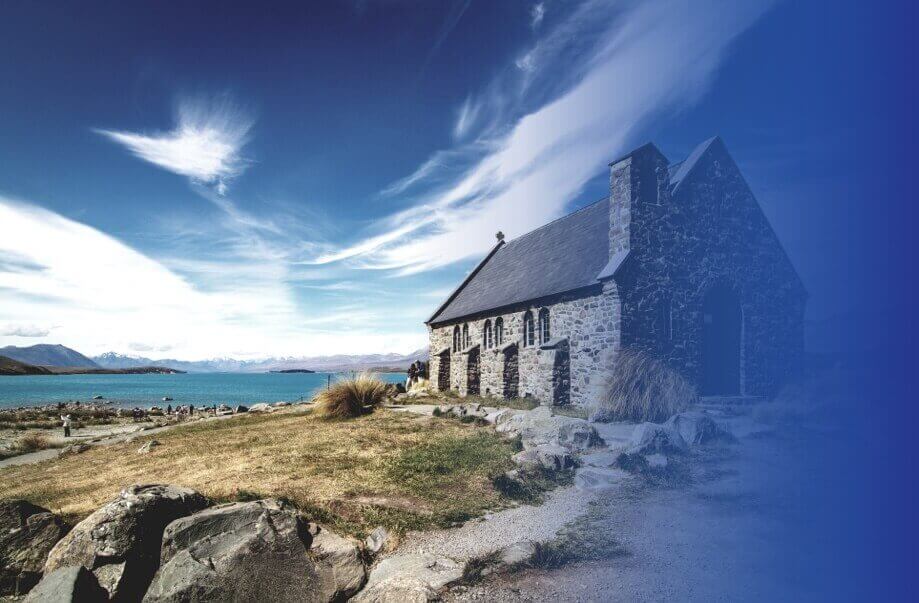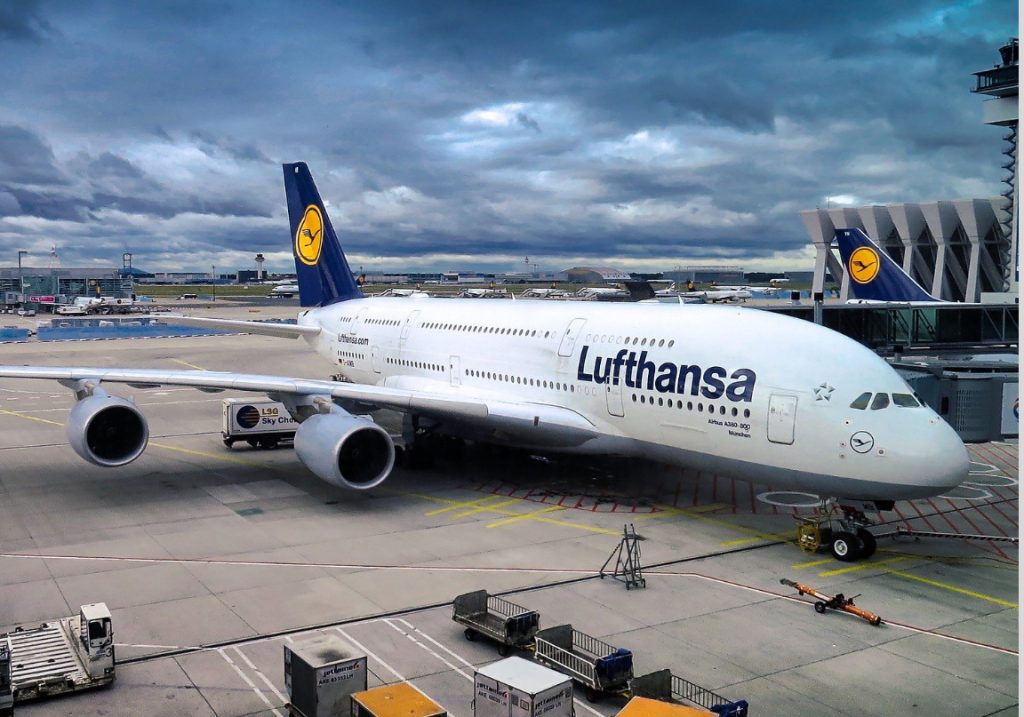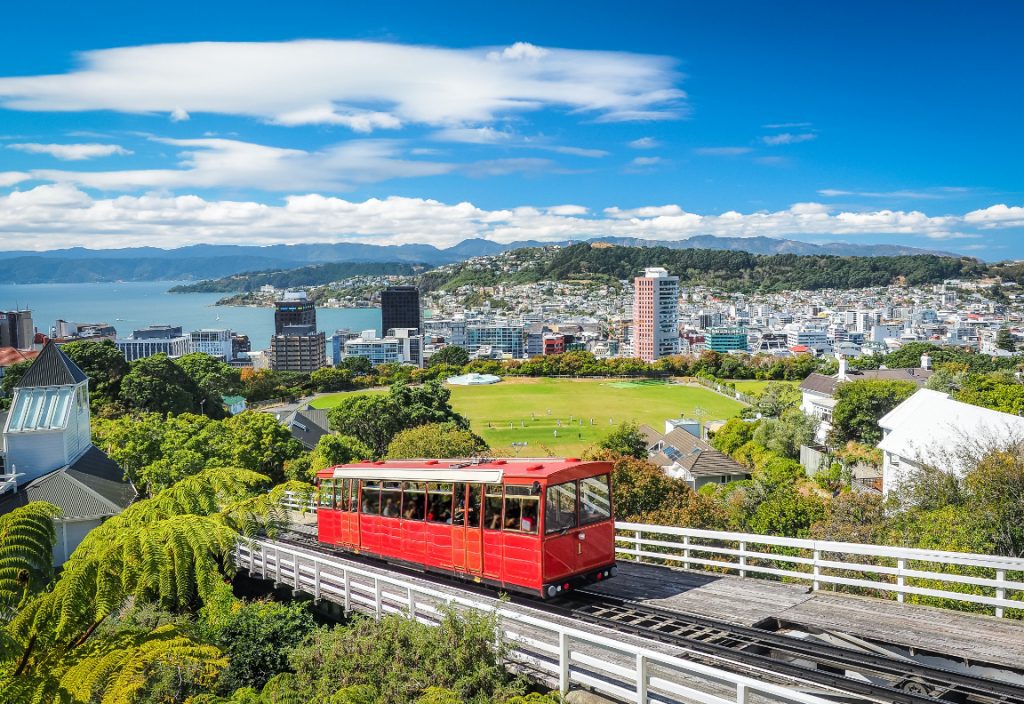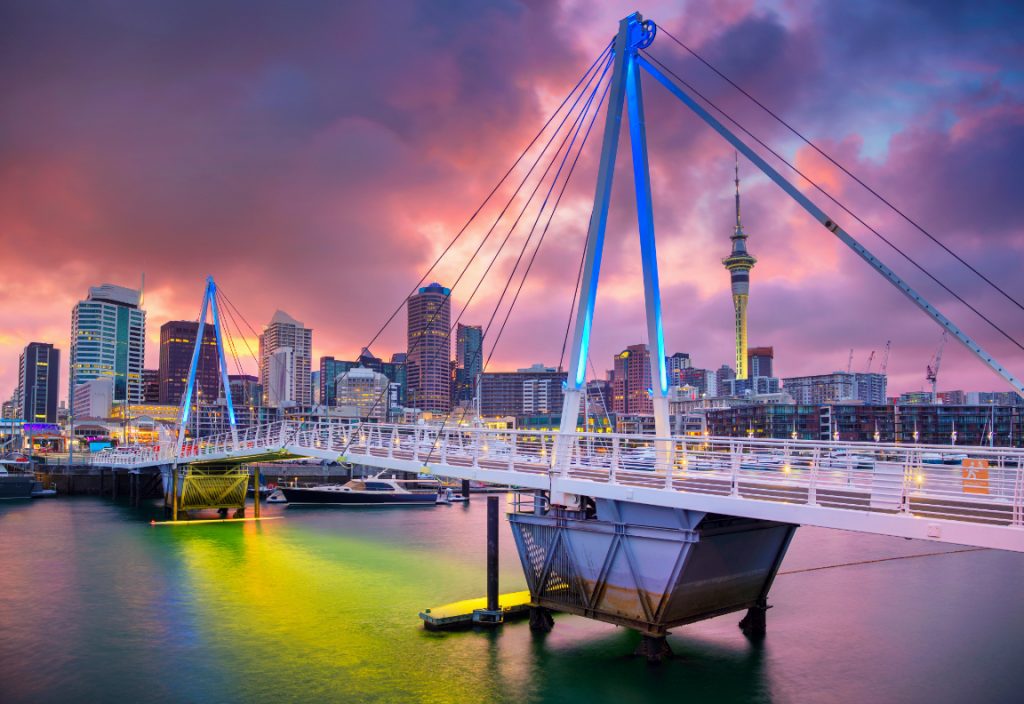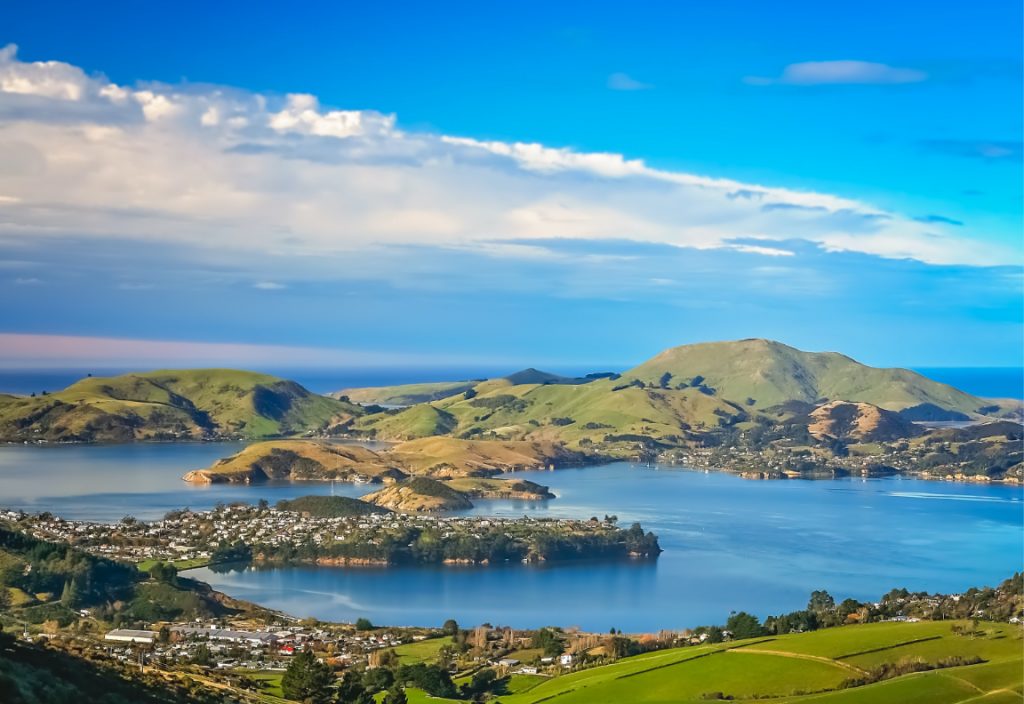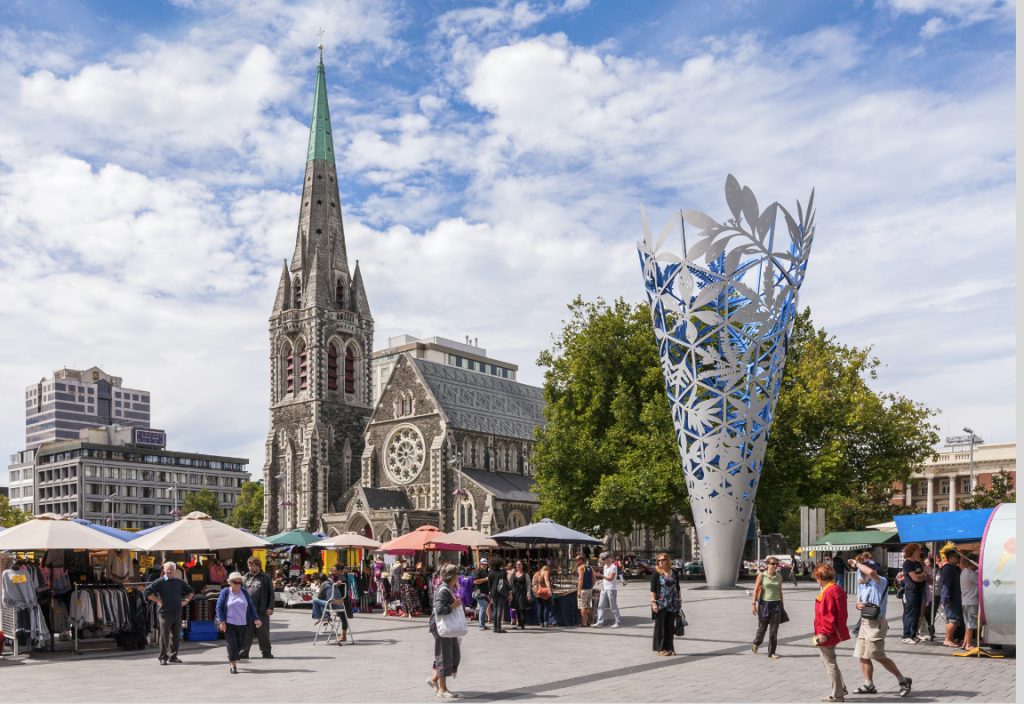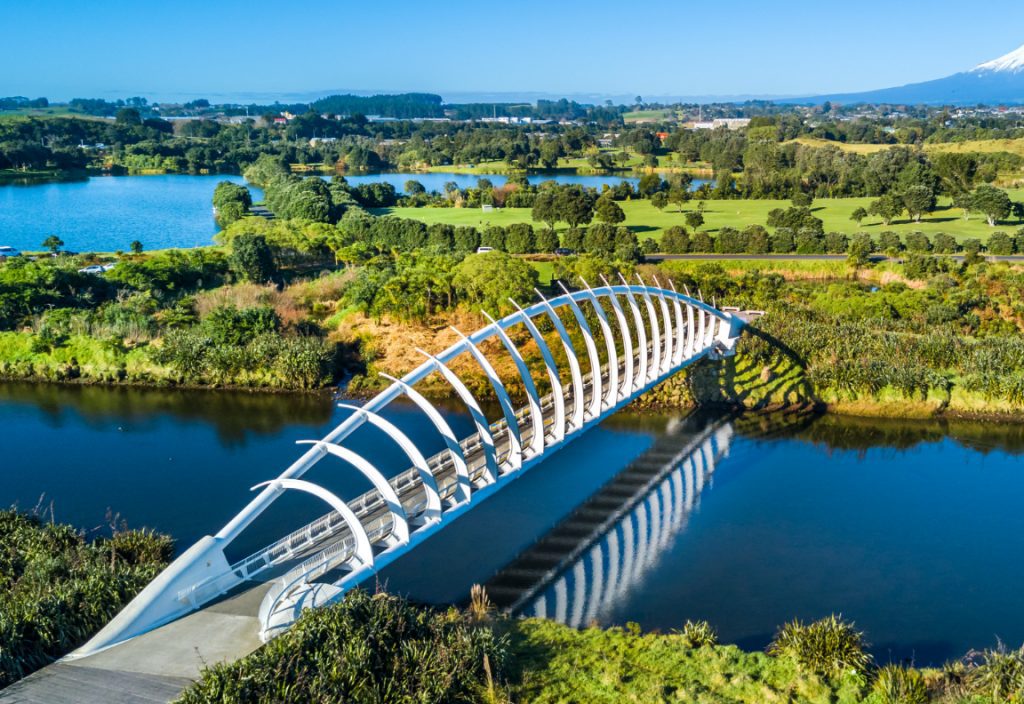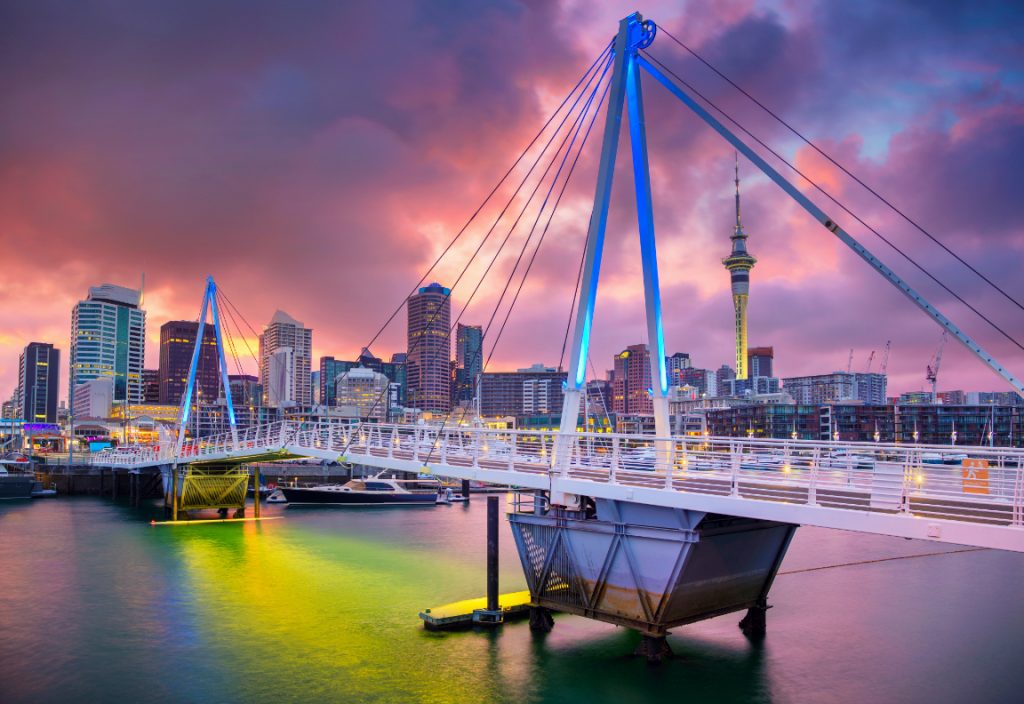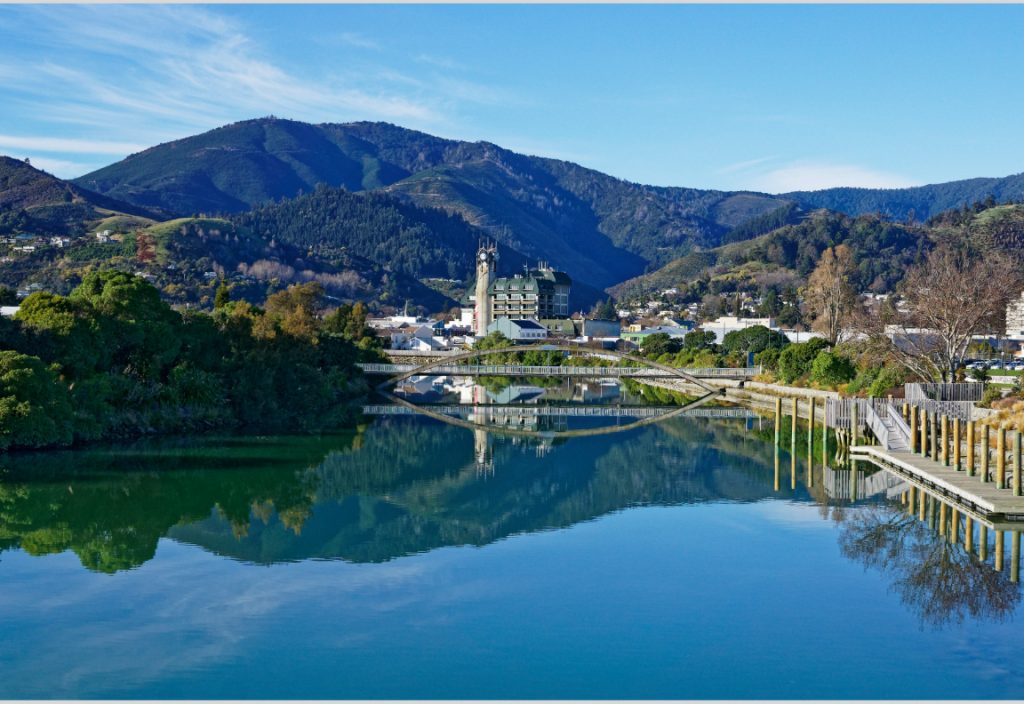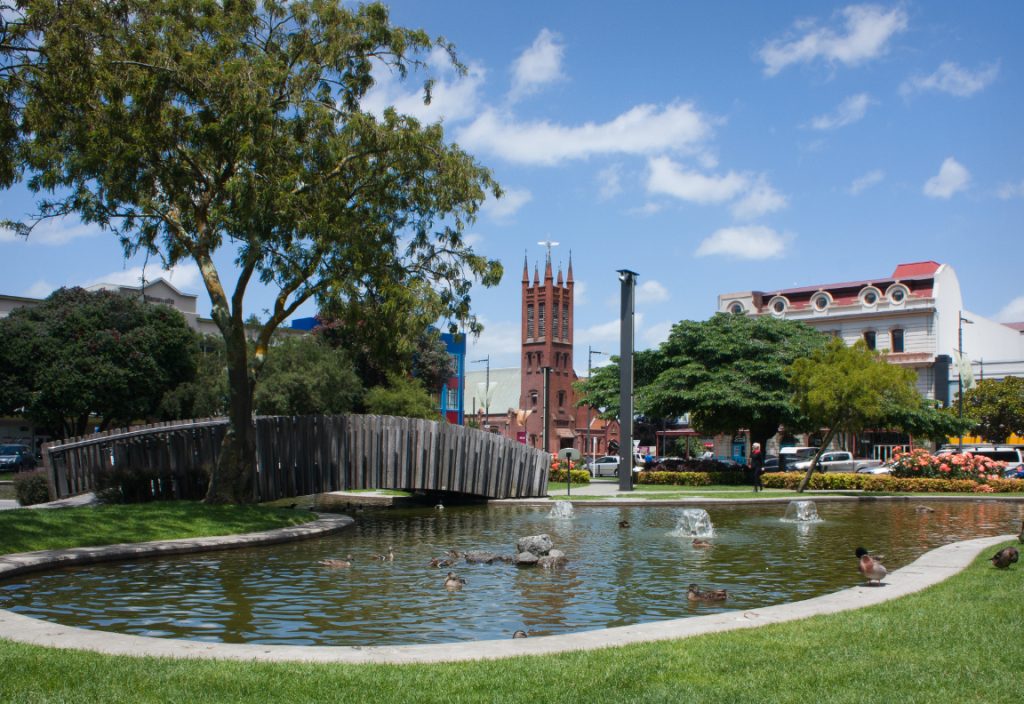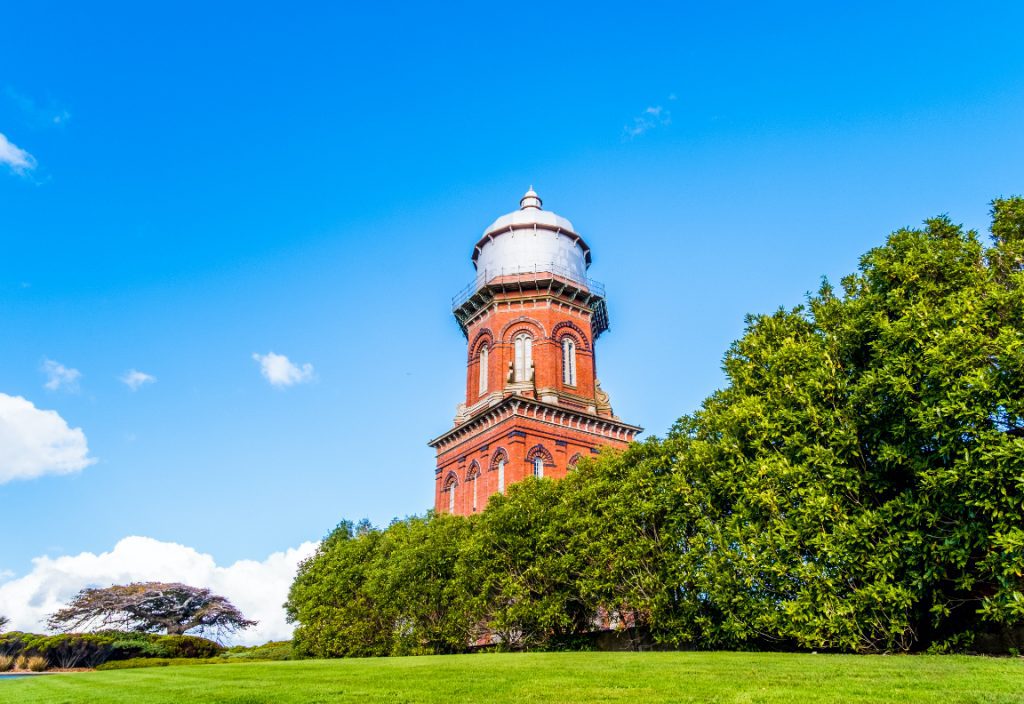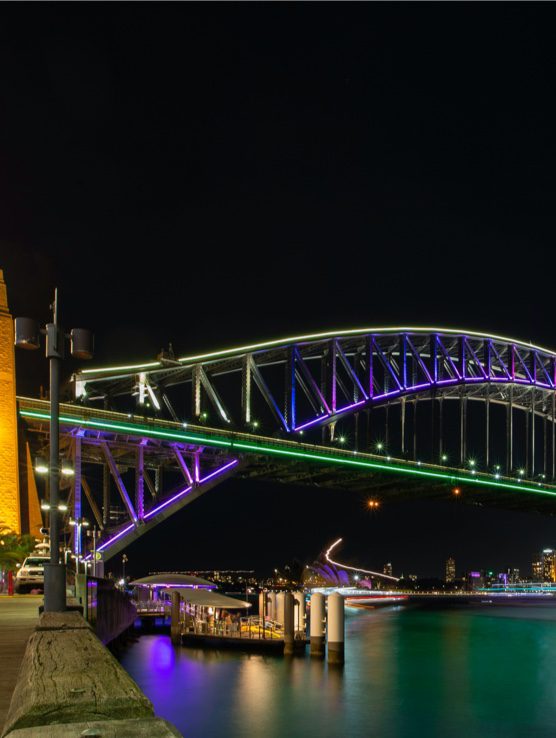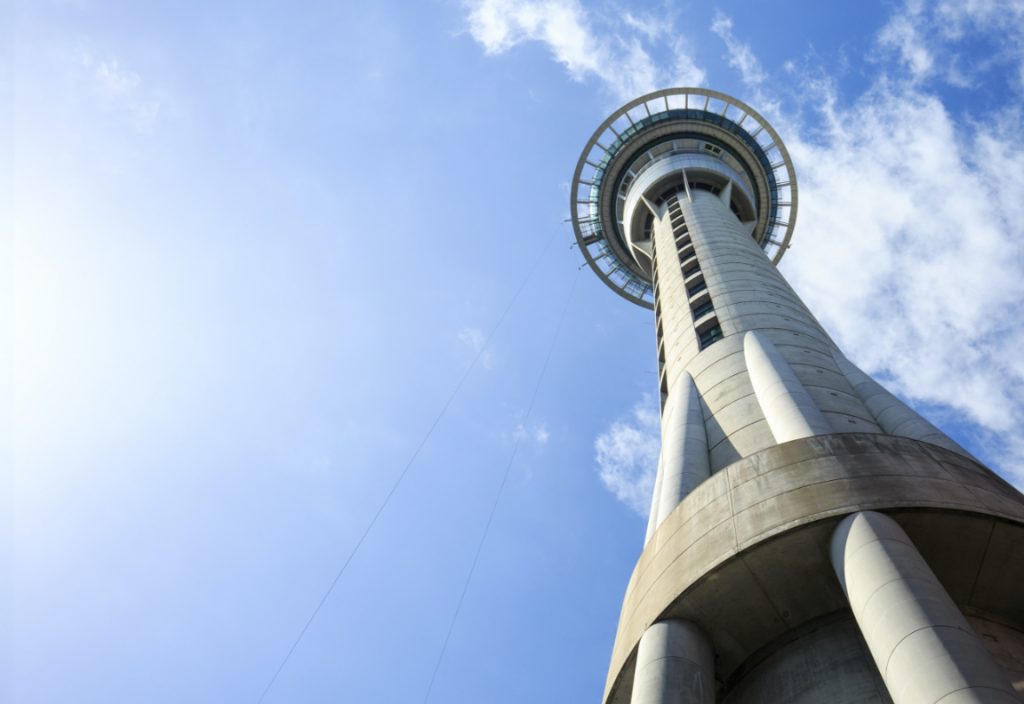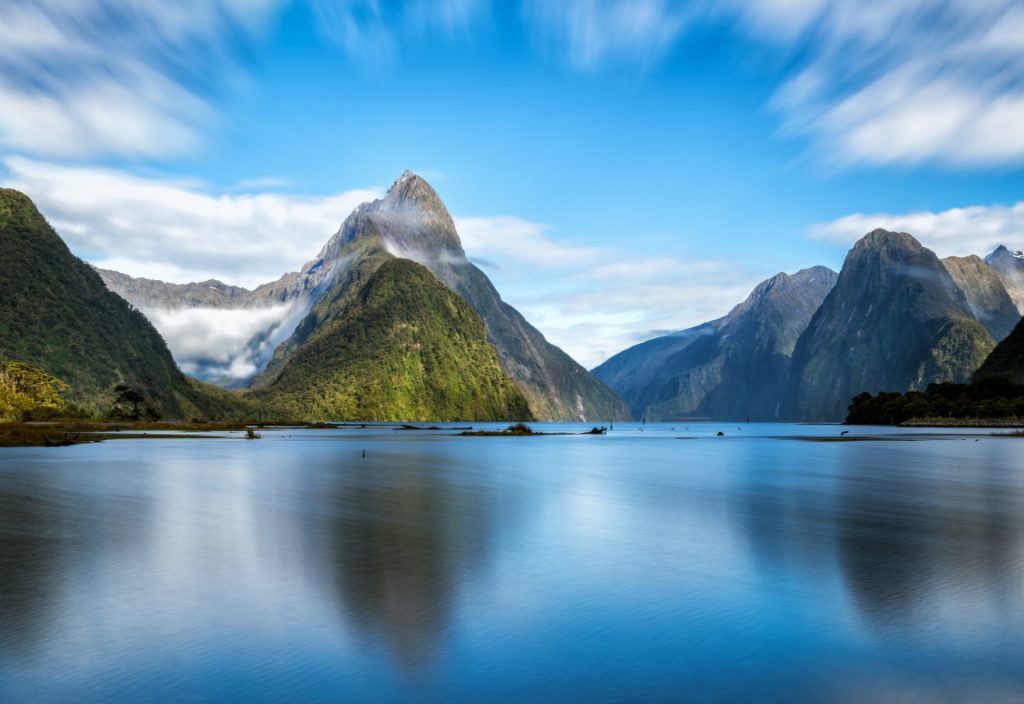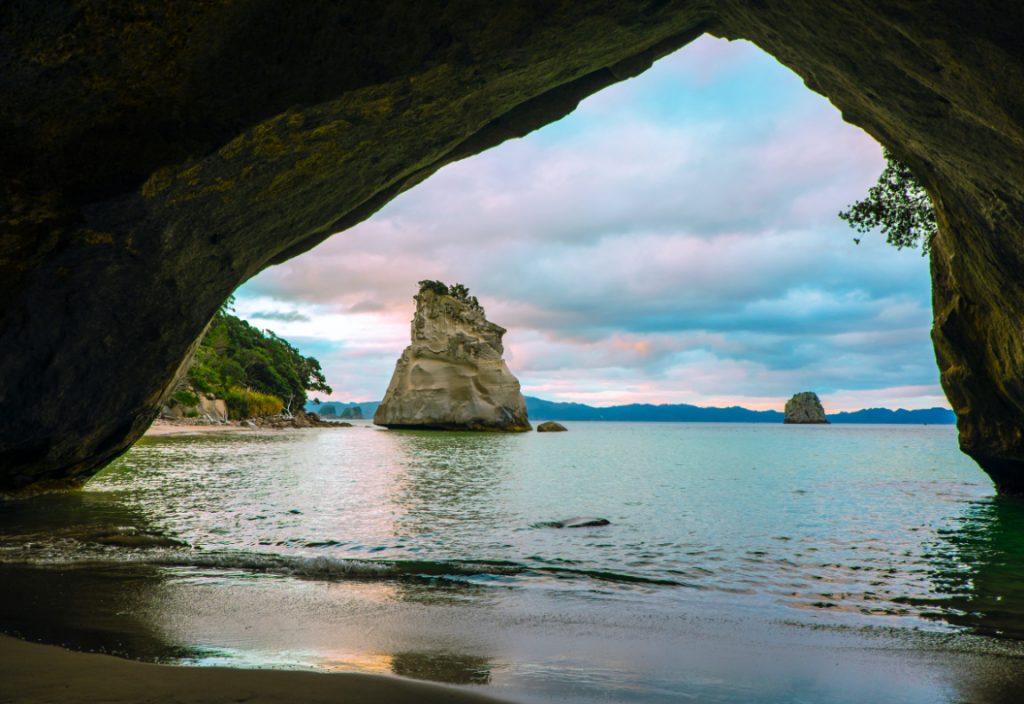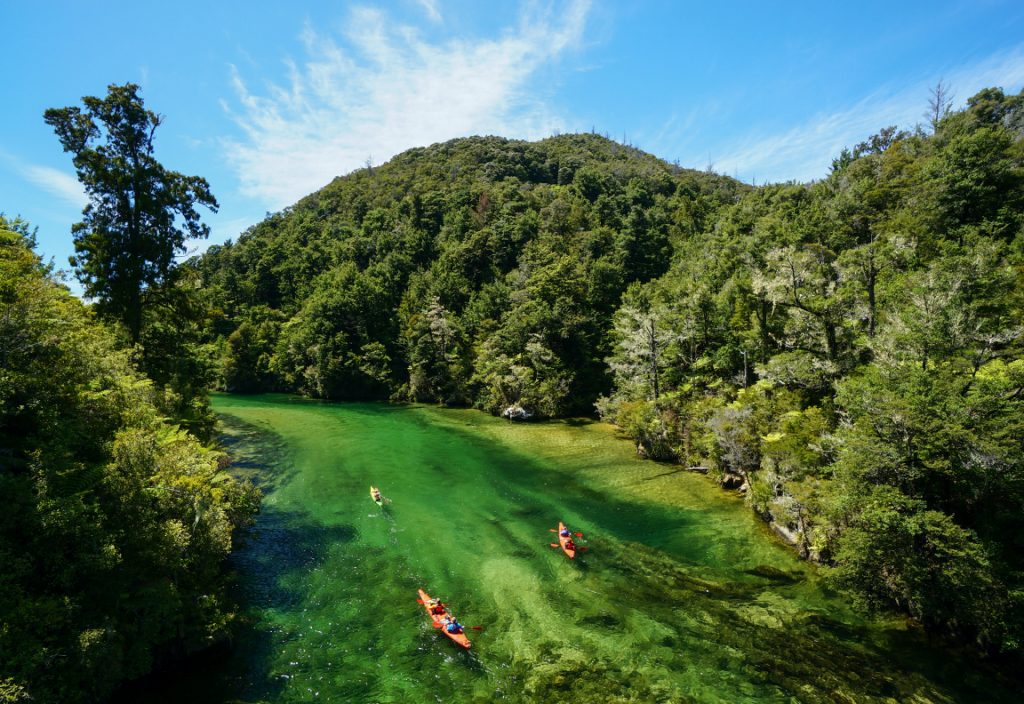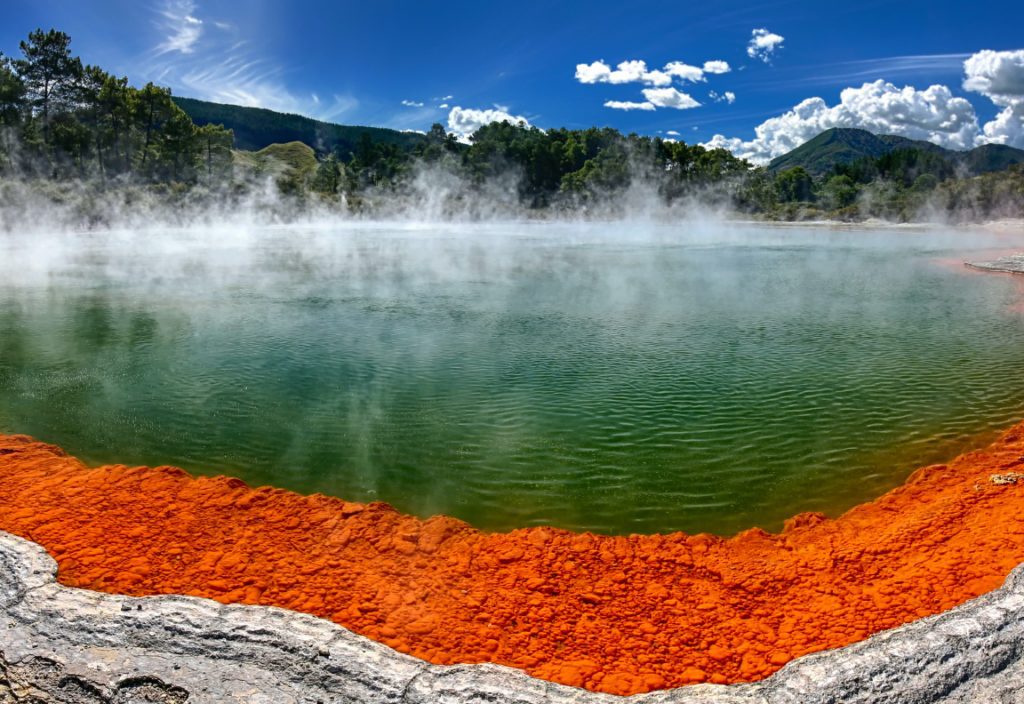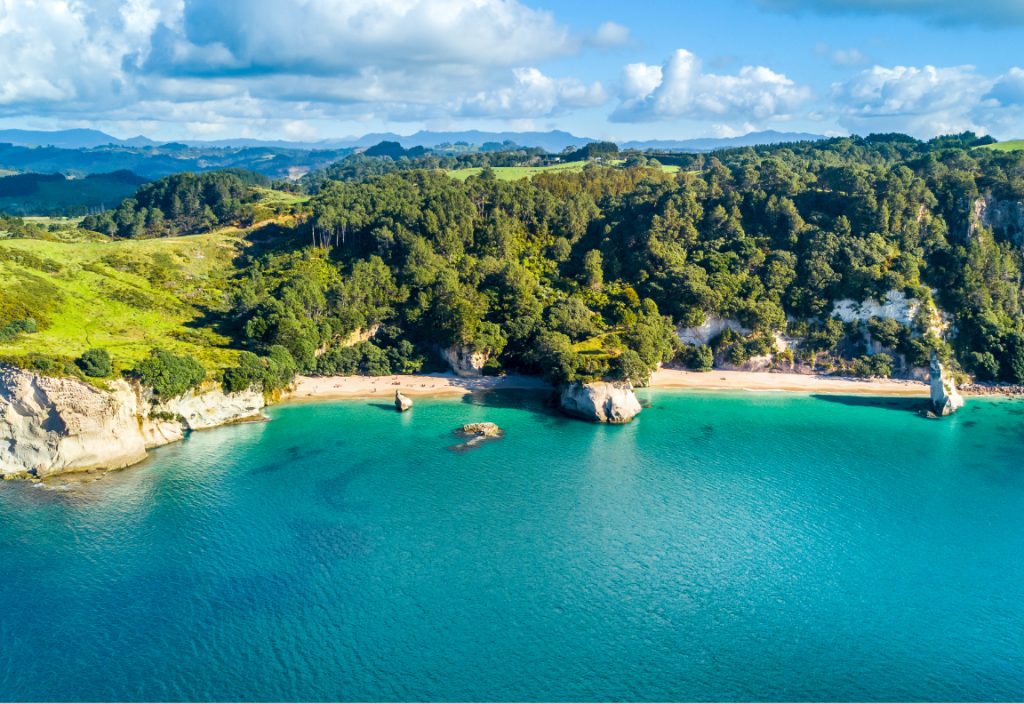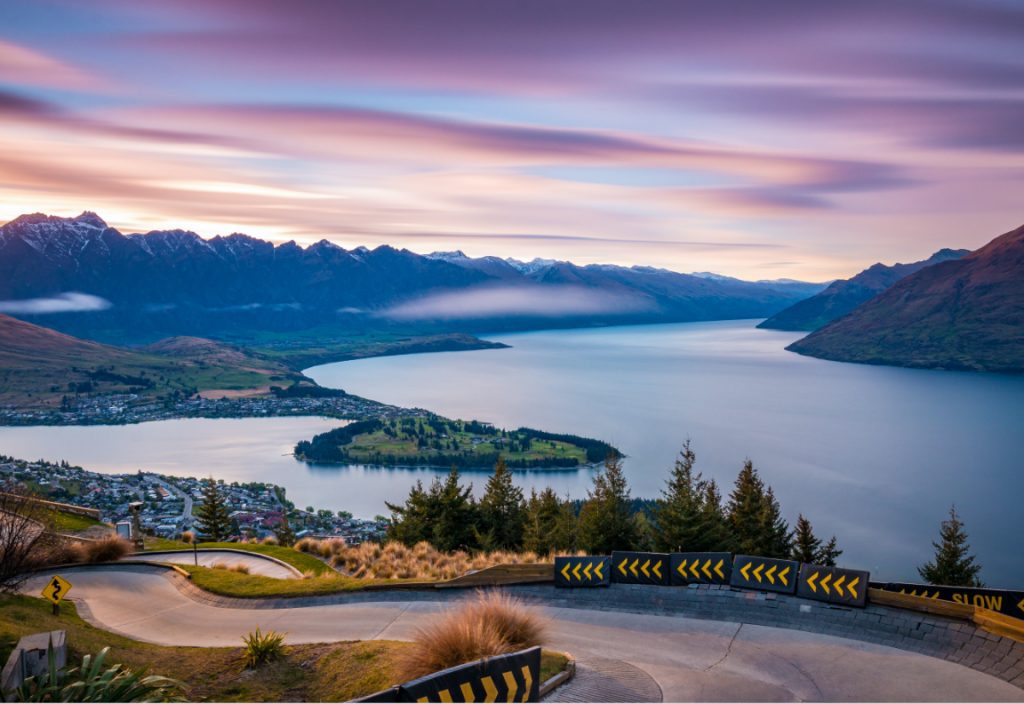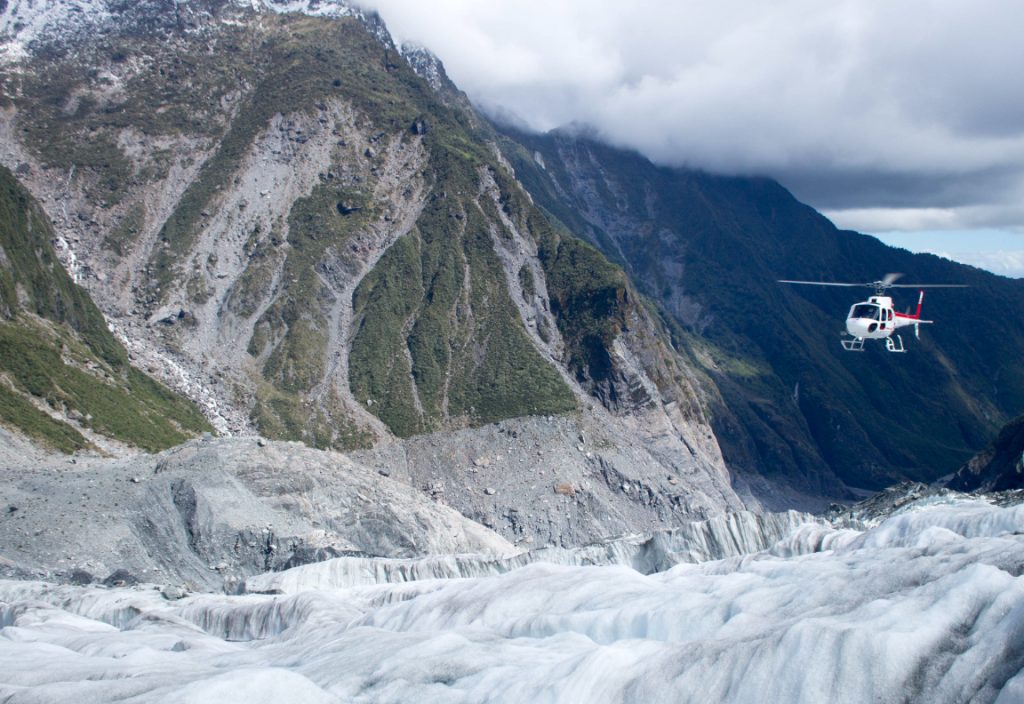International Student Population
New Zealand is a safe and friendly country for foreigners. For this reason, a large number of international students from all over the world are drawn to it. Every year more than 1,00,000 international students take admission in various institutions, colleges and higher education universities in New Zealand.

Country and Cities Population
New Zealand spans in an area of 268,021 km2 and has a population of 4.8 million, wIth Auckland being the largest city and Cambridge, the smallest city as per population. One-third of the population lives in Auckland, while Wellington, the capital city of New Zealand, is the second biggest city. Including this, 20 major urban areas in this country hold the majority of the population.
Top New Zealand cities based on their population are:
1. Auckland
2. Wellington
3. Christ Church
4. Hamilton
5. Tauranga
Demographic
In New Zealand, 70% of people are of European descent, and Maori are the largest minority community with 16.5% population, followed by 15% Asians. The mix of different cultures makes New Zealand unique and culturally vibrant. The sex ratio in 2016 was 0.97 male per female, and average life expectancy was calculated 79.9 years for males and 83.4 years for females.
Domestic Travel
Travelling in New Zealand is easy for international students. The vast road network connects you with cities and towns and allows you to travel and explore this nation throughout. You can take a bus, train, or rent a car or campervan to kickstart your journey in this beautiful nation.
Air
There are 123 Airports and 55 Heliports in Newzealand that connect the major cities and towns. Students can plan their journey ahead of time to get discounted tickets and also save time while exploring New Zealand. As an island nation, air travel in New Zealand is mesmerizing and memorable.
Train
The railway line in New Zealand covers around 4,000 km and covers almost every city. The scenic view while travelling via trains is undoubtedly captivating and refreshing. Auckland and Wellington also have suburban railway systems.
Bus
Bus services are frequently available everywhere in New Zealand, and are the most preferred mode of transport among students. You can travel to every city and town at a lower price with fares starting from 1 NZD.
Ferry
Living in New Zealand means you should get used to water travel. You can catch a ferry, travel from the North Island to South Island and behold the depth of Cook Strait. In comparison, water taxi services can take you to places that are fun but can be reached by ferry.
International travel
New Zealand receives flights from different parts of the world. Flights from India are available from Mumbai, Kolkata, Bengaluru, Delhi, Chennai, and Hyderabad. Most of the Indian flights land in Auckland, the city with the most international flights in New Zealand. While travelling from India to New Zealand, the common stopover locations are Kuala Lumpur, Bangkok, Hong Kong, and Singapore.
Popular international airports in New Zealand followed by Auckland are:
Christchurch international airport
Wellington international airport
Queenstown international airport
Dunedin international airport
Rotorua international airport
Accommodation & meal
You’ll find it easier to rent a room or find suitable accommodation in New Zealand than in many English speaking countries. However, the affordability of housing is the main challenge for many students. The cost of living mostly depends on the location, facilities and services. Therefore, it’s best advised to look for options that fall in your budget.
Available options of accommodation for international students:
Sightseeing
New Zealand might be small in size, but it offers superb scenic landscapes packed with nature’s artwork. From south pole to north pole, you will witness huge mountainous range, underground caves, golden sand beaches, boiling hot spring and rugged coastline. As a student, you will love to do glacier tracking, hiking, extreme sports like bungee jumping, skydiving, paragliding, water rafting while capturing the scenic beauty of New Zealand.
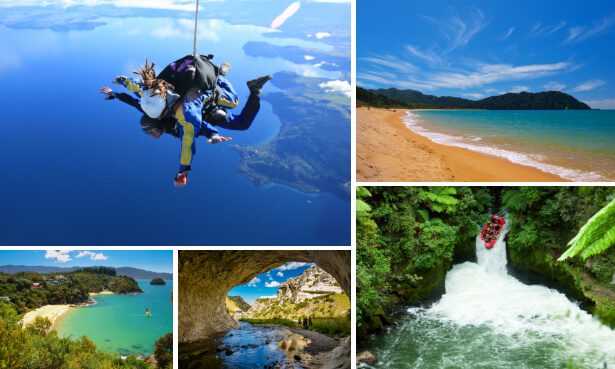
Weather
New Zealand is surrounded by water, and the climate near the coastline remains mild, with moderate rainfall and abundant sunshine. That makes weather as the best thing of this island nation. The south pole is relatively colder than the North. New Zealand witnesses warm summer in December, January, and February, Autumn starts from March to May, Spring September to November, and Winter in June, July, August, while the temperature around the year varies from 30ºC to -15ºC.
Currency
The currency of New Zealand is the New Zealand Dollar (NZD). It is also informally known as kiwi dollar. When visiting N.Z. for study purposes, it’s best to have some NZD to support your initial expenses after arriving in New Zealand.
Religion
New Zealand is a nation of a wide range of cultures, groups and beliefs. However, 50% of the citizens are non-believers, with 37% Christians as majority community and Hinduism, Islam, Buddhism, Sikhism and Maori as minority communities. Being a land of multiple cultures and religions, New Zealand is a secular and friendly nation for international students. Students are allowed to practice their religious beliefs and continue their living, respectively.
Nightlife
Nightlife in New Zealand brings you close to people from around the world. For international students, many places are affordable and fancy to spend time with friends. Even when you have a low budget for outing in breezing nights of New Zealand, you can always find a place that fits with your budget. You can go to bars, restaurants, clubs, coffee spots to spend some quality time while studying in this country.
Why live and work here
Standard of Living
New Zealand has the third-highest material standard of living and ranks 6th in the world for work-life balance. Unlike many other countries, the cities are neither congested and polluted. Instead, they offer excellent living standards upheld by strong healthcare and administrative services. The quality of education has also played a significant role in shaping the lifestyle of New Zealanders. International students will find it effortless to sync with the standards of living while pursuing their career goals.
Healthcare
International students must have health and travel insurance in New Zealand. For international students, the Healthcare system in New Zealand is not subsidised. Public health benefits are limited to citizens and resident visa or work visa holders. An appointment with a doctor can cost you around $75, excluding the cost of the prescription. The quality of Healthcare services in the country is up to the standards and ensures assistance to needy persons. The Accident Compensation Corporation, a government agency provides personal covers to international students. Check the ACC website to learn more about no-fault schemes for visitors and students.
Economic Background of the Country
In the 1900s, the majority habitats of New Zealand were Maori people, among them popular occupations were agriculture, fishing, and hunting. The economy of New Zealand saw a turn around in the era of 1984-2000, which marked the growth of the private sector and financial reforms that benefited the citizens. In 2019, the GDP of New Zealand grew by 2.2% and was 204 billion USD. With agriculture, industries, and service sectors employing the majority of people and contributing significantly in its economic growth.

Stay back after studies/work permit
Once you have completed your higher studies in New Zealand, you can be granted a work visa for one, two or a maximum of three years. A post-study work visa allows you to work in a relevant area as per your qualifications.
Click here to learn more about finding a job after your studies in New Zealand.
Student part-time jobs and wage rates
To cover and support your living and other expenses in New Zealand, you can work up to 20 hours a week during studies and full time during holidays. If you are a Masters or PhD student, you may be allowed to work full time during the studies.
Some popular part-time jobs that you can take up in New Zealand are:
1. Retail sales assistant
2. Seasonal workers
3. Supermarket assistant
4. Call Centre worker
5. Bartender
6. Waiter
The average wage per hour for international students in New Zealand is 18.90 NZD an hour. You will also get paid for public holidays and rest breaks.
How to find a part-time job
Part-time jobs allow international students to meet their expenses and connect with new people every day. Student job search is a National Organization that helps students search and find relevant jobs as per their preferences and qualifications. You will need to register as a student and select your preferred region, the field of work and type of career to get relevant results.
Job culture ethics
New Zealanders are communicative and supportive in the workplace. Also, the workplace culture is different from many countries, so it might take some time for you to settle in New Zealand. The maximum work hour limit is 40 hours and employers support employees regarding work-related issues. That makes working here enjoyable and memorable, pursuing the best career opportunities.

Popular student cities
New Zealand is home to many high ranking universities. Some of them are located in its capital city Wellington while most of them are established in cities like Auckland, Christchurch, etc. For the same reason, these cities receive thousands of students each year. Considering the population of N.Z. cities, none of them has a population of more than 1 million. So, international students make a large part of daily life in this country. Here are some cities that are most preferred by students.
Wellington
Wellington, the capital city of New Zealand, is also known as the hub of art, culture and also famously as the coolest little capital in the world. This city hosts some of the top educational institutes and best sandy beaches for spending quality time with friends on weekends. Victoria University and Massey University both combined attract a large number of international students in Wellington.
Auckland
Famous for its city life and landscapes, Auckland is also home to New Zealand's one of the oldest universities. The University of Auckland ranks as best in the nation and 82nd globally. Every year many sports and cultural events are organised in this city, that eventually adds flair to the lifestyle of its citizens.
Dunedin
The learning centre of New Zealand, Dunedin is also a worldwide famous city because of the University of Otago, beaches, and as the world's only mainland-breeding Albatross colony. The gothic style architecture in this city makes it relatable to many European countries.
Christchurch
International students consider the University of Canterbury in Christchurch as the best destination of studies in New Zealand. For the same reason, this institution hosts thousands of students every year. Other notable institutions in this city are the University of Lincoln and Christchurch polytechnic institute of technology.
New Plymouth
New Plymouth only has a population of around 50,000. But it is a great place to live, work, and study. As a student, you'll find it easier to settle and study in Plymouth because of its congestion and disturbance free environment. Western Institute of Technology at Taranaki (WITT) is the most recognised higher education institute in the city for pursuing a career in arts, media, social science, hospitality, business, etc.
Hamilton
Hamilton is the fourth largest city in New Zealand. It hosts many national and international events every year that attracts thousands of people. However, despite it, Hamilton is a quiet place and is the home to many international students. There are three prominent universities in Hamilton, namely The University of Waikato, Waikato Institute of technology, and Te Wananga O Aotearoa.
Nelson
Nelson is located at the top north-west of the South Island and is the sunniest city in New Zealand. It receives 2500 sunshines hours each year, which makes its beaches, mountains and forests brighter. You can visit the Abel Tasman park to soothe nature's offerings. This city also features some top-ranked universities- Nelson Marlborough Institute of Technology and Nelson School of Music, that attracts many international students.
Palmerston North
As its name suggests, this city is located at the Northern Island of New Zealand and offers thrilling weather. The prestigious Massey University is originally situated in this city with campuses in Wellington and Albany. Other prominent educational institutes in Palmerston North include Universal college of learning, IPU Tertiary Institute of New Zealand, Massey College of Business..
Invercargill
Invercargill is attributed as the city of "Water and Light". Light because of long summer twilights and light as it sees southern lights, which are amazingly surprising to witness and behold. Invercargill, is a hub of art and business, mainly because of its extensive roads and streets, it is also emerging as the commercial centre in the Southland region. The most recognised institute in Invercargill is Southern Institute of technology. It offers undergraduate and postgraduate courses to international students.
Napier Hastings
Napier and hasting's are twin cities, 20 km apart from each other. These are located in the Hawke's Bay region of the North Island. The city is famous for Art Deco-inspired architecture, fruit gardens, and cattle farming. Napier Hastings has Eastern Institute of Technology as the only institute which provides higher education to international students. You can pursue courses such as hospitality, tourism, health science, nursing, information and technology.
New Zealand People & Culture
History of New Zealand
The history of New Zealand is vibrant and filled with tales of Maori and European cultures. Maoris are the first inhabitants of New Zealand, and Abel Tasman was the first person first to sight this island nation, while Britishers colonized it after the discovery of James Cook in 1769.
In the year 1840, Maori and U.K. representatives in New Zealand signed the Treaty of Waitangi making it a British empire with Maoris having the same rights. However, due to various disputes, the war between the two started in 1843. Later in the year 2000, New Zealand got full independence from Britain, with Elizabeth II as the country’s official head of state.



Demographic information
New Zealand covers a total land area of 268, 021 km2 and has a population of around only 5 million. The average life expectancy of people living here is 81.66 years.
Language
English is the most spoken language in New Zealand with 95% of the population speaking it. Maori is also one of the official languages of this country, it’s spoken by 4% of the people.
With good English speaking skills, you’ll find it easier to communicate and exchange ideas with New Zealanders.
National Events
1. 1 January – New Year’s Day
2. 6 February – Waitangi Day
3. 10 April – Good Friday
4. 13 April – Easter Monday
5. 25 April to 27 – Anzac Day
6. 1 June- Queen’s Birthday
7. 26 October – Labour Day
8. 25 December – Christmas Day
9. 28 December – Boxing Day
Main Festivals
Rhythm & Alps
It is a camping and summer festival that brings together D.J.'s, world-class bands and festival-goers in New Zealand to witness the New Year. The camping includes facilities like swimming holes, hot showers, chill zones, phone charging, a food village and more. It is one of the most fantastic music festivals in the world. International students who are fans of mountains and music should visit there and experience its awesomeness.
WOMAD
World of Music, Arts and Dance is a modern and international festival which celebrates music, art, and dance. The theme of this festival is to create awareness about the potentials of the multicultural society. Artists from around the world participate in WOMAD and showcase their talent.
Rhythm And Vines
World of Music, Arts and Dance is a modern and international festival which celebrates music, art, and dance. The theme of this festival is to create awareness about the potentials of the multicultural society. Artists from around the world participate in WOMAD and showcase their talent.
Homegrown
Homegrown is sponsored by Jim Beam- an American brand of Bourbon whiskey. Initially started in New Zealand in 2008, this festival takes place annually in Wellington. Each year more than 50 bands share stages and their art while thousands of people from N.Z. and around to spectate and participate in the rocking performances.
Marlborough Wine Festival
Marlborough Wine Festivals is one of the original festivals of New Zealand's Marlborough region located in the. It is the longest-running wine festival and held every year just weeks before harvest. By joining this festival, you can enjoy world-class wines, local cuisine and music as the cherry on the top.
Hokitika Wildfoods Festival
Wildfoods Festivals marks the celebration of wild food and lifestyle of the West Coast. It is one of the most popular food festivals among both Kiwis and foreigners. This delicate festival is best for international students who wish to explore their penchant of the wild food in New Zealand. Along with these, some other exciting and unique festivals are held every year in New Zealand. Students can also join similar events like Wellington On A Plate, Marchfest, Victorian Fete, World Buskers Festival.
Indian festivals in New Zealand
New Zealand marks Indian festivals in a unique and friendly way. With massive participation from locals and foreigners, festivals like Holi are celebrated around the country. Other major Indian festivals include Diwali, Navratri, Ganesh Chaturthi, and Janamasthmi.
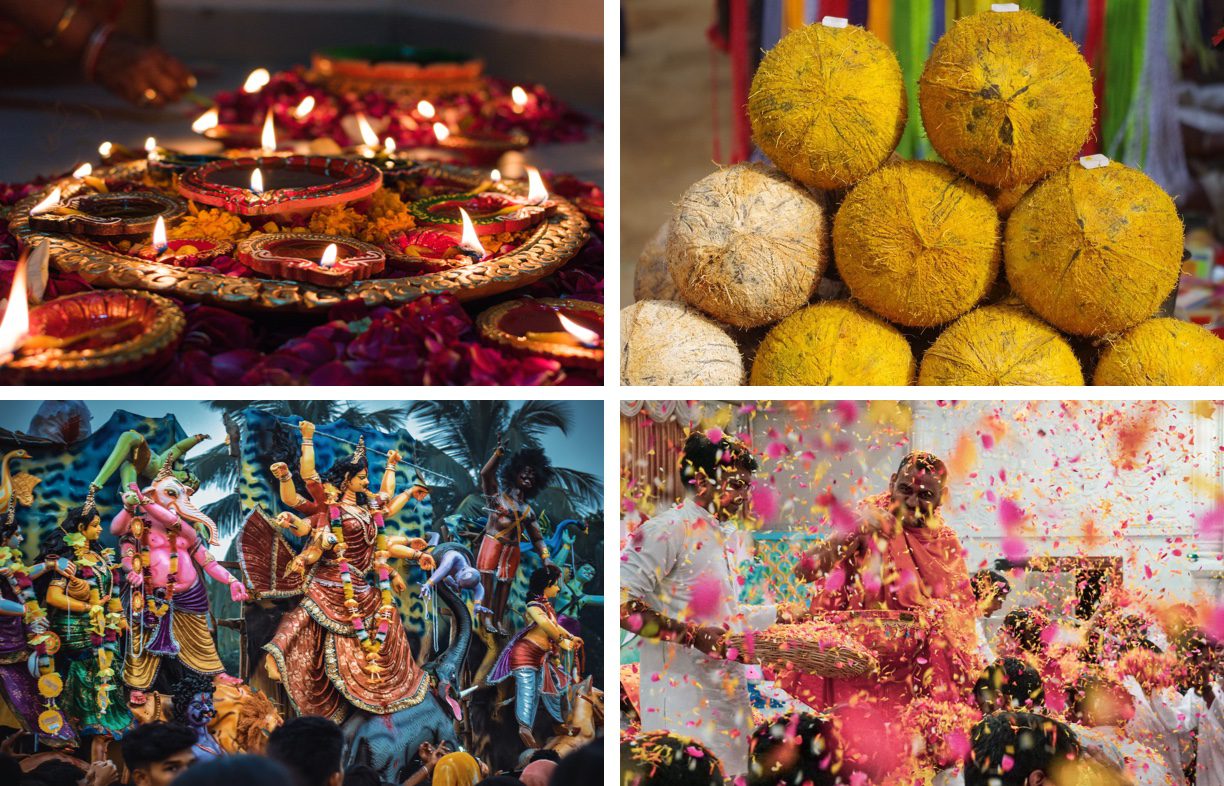
Health and Safety in New Zealand
- New Zealand health system for international students
- Insurance & providers
- Student helping NGOs in New Zealand
New Zealand health system for international students
New Zealand is a developed nation and offers high healthcare standards to its citizens and immigrants. For international students, it’s essential to have health and travel insurance to claim the benefits of its healthcare programs.
Insurance & providers
International students must have health and travel insurance. You can search online to find relevant insurance providers as per your requirements. Make sure that your insurance is applicable as determined by NZQA.
Student helping NGOs in New Zealand
At many times, International students require assistance from people in New Zealand. There are many NGOs and government-backed organisations that offer free support to the migrants and students.
Some of the most popular ones are:
Helps students with living and studying in New Zealand. You can also search for work opportunities to support the cost of living and other expenses.
2. English Language Partners New Zealand
Search for English tutoring in your areas. You can also join online classes and improve your communication skills.
3. StudyLink
Get accurate information about student loans and other finances to support your education.
Get free advice with settling your life in New Zealand.
Report classroom or public discrimination directly using this website.
6.Industry Training Federation
This website connects you with organisations providing industrial training
Student Support Centers
When abroad from home to an island nation, most international students feel frightened of going alone for studies in New Zealand. However, this nation hosts millions of people from India. That indeed makes it a bit relaxing for Indian students. In case of any emergency, you can call 111 to avail emergency services like police, ambulance etc.
- International Student Hotline in New Zealand : 1300 363 079Connect with your university or education provider with support services.
- Connect with your country’s home embassy.
Emergency Helplines
International students can always connect with national emergency helplines of New Zealand to get instant support. Students are advised to call 111 whenever they face any challenge or emergency in this country.
Healthcare- 0800611116
Police (General help and inquiry)- 105
Indian consulate- 09-6366306
Best Places to Visit in New Zealand
New Zealand might not be one of the biggest countries in the world. But, it is jam-packed with thousands of things to do. You’ll be amazed to explore this country up and down, from South to North. Among international students, exploring the landscapes and coastlines are the favorite ways to capture the beauty of New Zealand. There are many adventure activities such as rafting, jet boating, skydiving, bungy jumping, etc. to get an adrenaline rush. Along with this, there are heritage attractions, Victorian cities, large mansions and places to visit and learn about the past:
Sky Tower, Auckland
The Sky Tower is 328 meters tall and is situated in Auckland's Central business district, also known as City Centre. It is a Telecommunication and observation tower that gives you a panoramic view of Auckland. Every year millions of tourists visit Sky Tower and enjoy Sky Cafe, Orbit 360 degree dining, the sugar club restaurant and sky deck. In the upper portion of the Tower, there are two restaurants and a Cafe that offer great food and scenic views of the city as icing on the cake.
Milford Sound
Milford Sound is situated on the West Coast of the South Island and is part of the Tasman sea. Popular English journalist Rudyard Kipling termed it as the 8th wonder of the world. It is also popular among New Zealanders and tourists for hiking and exploring the Alpine scenery.
Bay of Islands
Bay of Islands holds a great historical value and is a fabulous place for fishing, sailing and exploring as many as 144 different Islands. Many of these Islands also have walking tracks that make camping easy and fun. There is an abundance of wildlife animals at the North of Russell like dolphins, whales, Marlin and Gannets.
Tongariro National Park
Tongariro National Park has attracted Travellers around the world since 1887. It's the oldest National Park in New Zealand and is counted as one of the World Heritage sites of mixed cultural and natural values by UNESCO. There are many religious sites related to the Maori belief.
Rotorua
Rotorua is one of the most sought destinations for domestic and international tourists. There are many geysers and hot mud pools that attract many people and are also the source to Rotorua caldera- volcano located in the North Island of New Zealand. There are tens of lakes that surround this city and add appeal to its aura.
Coromandel Peninsula
The Coromandel Peninsula Is situated on the north island of New Zealand and is a part of the Waikato region. Its name shares roots to India's Coromandel coast, located in the Bay of Bengal. There are some fantastic places to visit, such as The Lost spring, Cathedral Cove Walk, Hot Water Beach, and Rapaura Water Gardens.
Queenstown
Queenstown is popularly known as the adventure capital of the world. There are many adventure and thrilling sports that let you play with adrenaline and push limits beyond imagination. Despite it, in this city, there's always room for family fun by enjoying mild activities such as farm tours, indoor karting, Segway tour, Quad biking, etc.
Abel Tasman National Park
Attributing to its uniqueness, the Tasman National Park is situated between the Golden Bay and Tasman Bay at the South Island's north end. Though it's the smallest national park in N.Z., it might take 3-5 days to walk the entire track in this park. But, it's a worthwhile adventure that's both safe and healthy for travelers and students.
Waitomo Glowworm Caves
The Waitomo Glowworm Caves are famous for its world-renowned boat ride. You will experience a ride through the boat under thousands of glowworms, which is one of the unforgettable sightseeing attractions in the Waitomo. People from New Zealand and the rest of the world visit here in a large number. International students who are fond of history and geology should visit this one of the most inspiring natural wonders of New Zealand.
Franz Josef Glacier
Franz Josef Glacier is 12km long and the steepest maritime glacier in New Zealand. It starts from the Southern Alps and falls into the Westland's national park. Though the glacier is 3,000m high, you'll see many people hiking just as usual. This glacier is the prime tourist destination in the West Coast with 2,50,000 tourists visiting every year
Immigration & Citizenship in New Zealand
Student visa
Indian students require a Student Visa to study in New Zealand. Generally, it’s valid for up to the duration of the course and allows you to work for 20 hours a week during studies and full-time during holidays. There are some specific conditions that you’ll need to meet to secure a Student visa for New Zealand. You can visit the New Zealand Immigration website to apply online. Simply create your account and make sure to apply at least six weeks before your planned journey.
Before you apply, you must have:
- Acceptance letter.
- Proof of funds.
- Health and travel insurance.
- Medical certificates.

Extend your visa
New Zealand allows visa extensions for students. But it largely depends on the reason behind it. Generally, if you can’t finish the course in the given time, then you’ll be granted an extension.
If you wish to extend your visa, you should contact a licensed immigration consultant. Or learn more about visa renewals at Renewing a student visa website.

New Zealand plans to invite immigrants
New Zealand is an island nation but its well-reputed for higher education among international students. Every year millions of students enrol in the prestigious universities in New Zealand. However, at present due to the Coronavirus pandemic, all visa programs are halted until 9 November 2020.
- Post Studies Work Visa in New Zealand
- Citizenship
- Spouse/ family members & dependents
- Language requirements
Post Studies Work Visa in New Zealand
You can apply for a post-study work visa after completing your education in New Zealand. This visa is valid for up to three years, depending on the level of student’s qualification. In addition to this, once you get a work visa, you’ll also need to apply for tax number-IRD, check here. For more details, click here and learn more about PSW visa.
Citizenship
New Zealand allows dual citizenship and people from other countries to indefinitely live and work as a permanent resident. To apply for citizenship, you’ll first need to grant a resident visa. You can apply for a permanent resident visa after living for more than two years. This visa also allows you to redeem public healthcare benefits and other schemes such as pay equal fee as a domestic student.
In case you want to settle permanently in N.Z. You can apply for citizenship only after living there on a resident visa for at least five years or 1,350 days with each year minimum of 240 days spent in New Zealand.
Types of New Zealand citizenship:
- Birth
- Grant
- Descent
You can use the N.Z. immigration website to enquire about arrival and departure records, confirm your immigration status, or collect your original documents.
Check different visa options that allow you to live in New Zealand as a citizen permanently.
Spouse/ family members & dependents
New Zealand allows spouse/family members to come along you and stay with you on a Visitor Visa. Generally, their duration of stay this visa offers is similar as per your study visa. Learn more at the New Zealand Immigration website, or find different types of visa for your family.
Language requirements
In New Zealand, there aren’t any specific requirements for students. However, it varies on the education provider and criteria defined by them. You might not require any additional tests such as IELTS, TOEFL, etc. if you have already finished your previous education in English.
In case, you are not sure of visa requirements for as per your academic profile, feel free to connect with our experts.



